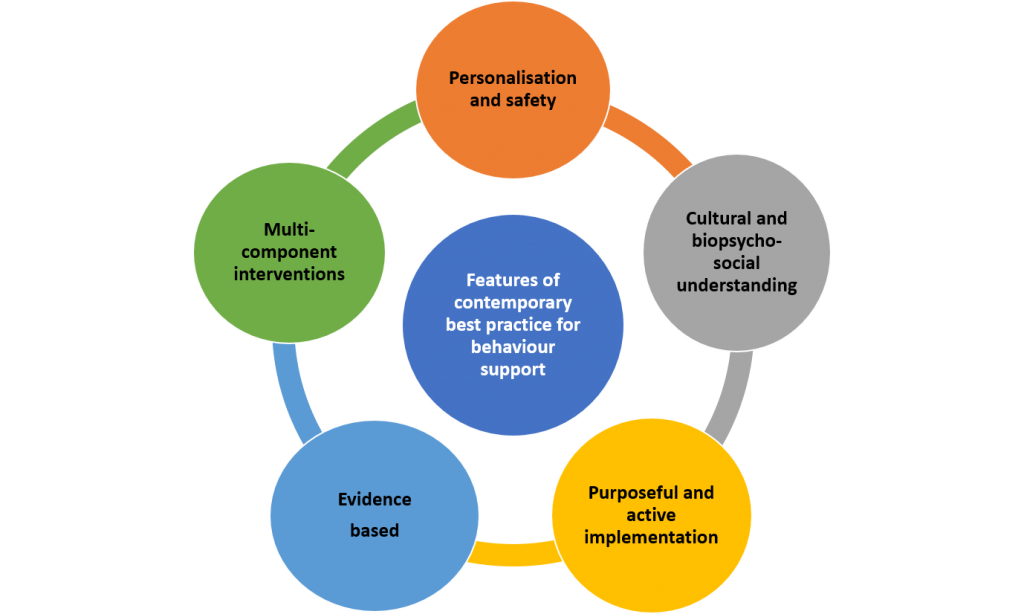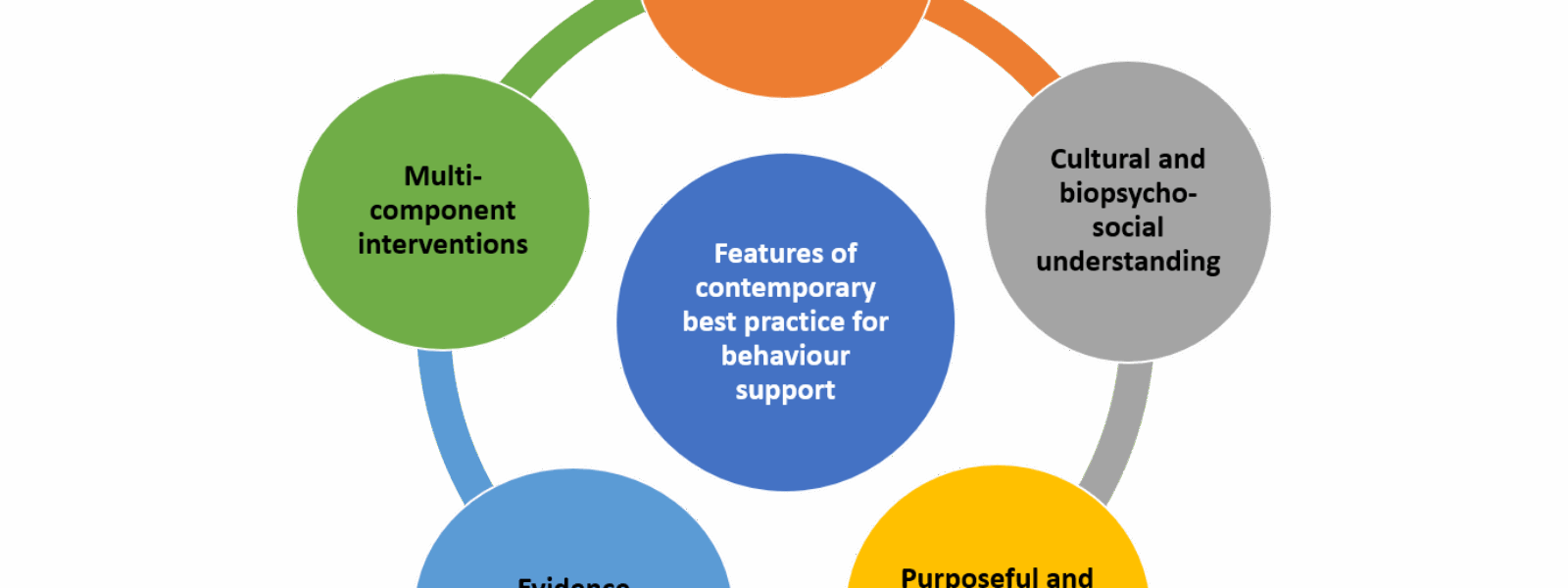October 23, 2020
Delivering Positive Behaviour Support
In 2016, myself and a colleague delivered a seminar on behalf of HealthCare NZ’s Explore team to the ASID NZ Conference, in which our key message was to explain how the fundamental aim of Positive Behaviour Support is to improve the quality of the person’s life and for those around them.
When Carr et al. (2002) first developed a description of Positive Behaviour Support, they emphasised an approach focused on preventing challenging behaviours by making them inefficient or ineffective when compared to helpful and desired behaviours. Our presentation supported this position, however we also emphasised that through everyday environments and interactions, PBS means ensuring people receive the right support at the right time.
Explore has integrated this approach into our work to support and help people with challenging behaviours. We have also adapted the position adopted by BILD Centre for the Advancement of Positive Behaviour Support, that identified best practice PBS happening in the five ways. These are described in more detail below.
Having a strong conceptual foundation based on evidence and research means we have well informed practitioners who can deliver practical and tangible supports.

Personalisation & Safety
It’s important that consistent actions are taken to enhance the quality of life and wellbeing of each person. Our team recognises that each person we support is an individual, and actions have to be created or agreed with them and written into a plan specific to meeting their situation and goals. The actions support the person to be engaged in activities that are meaningful to them and enable them to safely experience an ordinary life within their own community.
A cultural and bio-psycho-social understanding of the person and their behaviour.
Following on from the points raised above, any assessment we undertake identifies each person’s positive identity, cultural needs, their history and their unique and individual characteristics including their strengths, any physical/medical/cognitive differences, their emotional and spiritual needs, and any significant life events. Once again, the focus is on each person as an individual with their own specific situation and behaviours and recognising solutions need to work for them.
Purposeful and active implementation
All the services and support provided must be well planned, well implemented and monitored. We look to always have clarity around every person’s role and responsibilities when we’re working together. Support is progressive and developmental for the individual. Flexibility and the ability to change is important, and this includes a focus on the teaching and learning of new skills. Any restrictions deemed necessary are kept under continual review and the least restrictive approach is always taken.
Evidence-based support
Evidence-based support plays a crucial part in the support that we provide. When working with each person, we develop approaches and plans based on different data collected and analysed at all levels in the system. Data, both hard and soft, is used to inform assessment, to evaluate intervention, and to monitor and improve the quality of life and wellbeing of the person and others. Information is collected from the everyday context of the person themselves, their families, and supporters in order to see if things have improved for them, and what we can do to make further adjustments and improvements in our service delivery.
Multicomponent interventions
Support for each person is implemented at different levels and in different ways, once again reflecting the individual and personalised approach our team takes to providing support. Proactive strategies are developed to prevent or reduce the triggers and events that evoke or maintain a person’s behaviours which are of concern. Interventions are designed to support personal development and the learning and maintaining of new skills.
Coping strategies are prioritised and based on evidence, and the environment/approach we provide is altered to ensure it is the best possible fit for the person. Reactive strategies can also be put in place to help people keep safe when needed. Support is based on assessed need for each person and utilises a range of evidence-based therapies and supports to assist their recovery.
The applied model of positive behaviour support has relevance across the life span, to support children, young adults, adults living independently or in supported living situations and with an older person’s care.
Chris Scott is Clinical Development Manager for Explore Specialist Advice.
Explore Specialist Advice is a national provider of behaviour support for children and adults with a disability or autism. As part of HealthCare NZ, Explore delivers a number of additional contracts utilising the expertise of our team in the areas of consultation, assessment, intervention, workforce development and supervision. Learn more about Explore and positive behaviour support.
Written by Chris Scott – Portfolio Manager Wellbeing Services Psychologist



